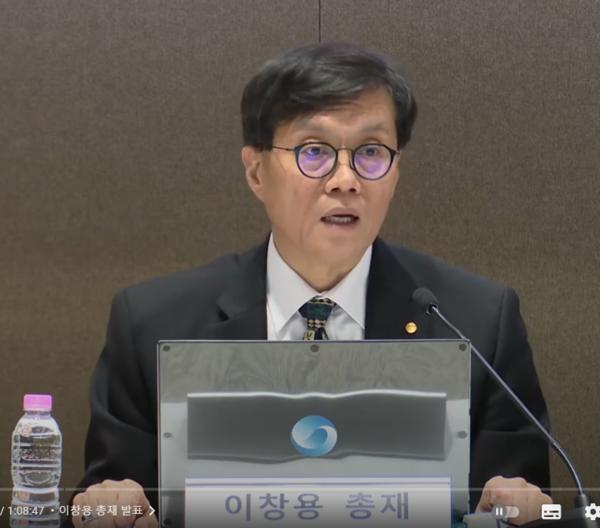Rhee Chang-yong Calls for Immediate Fiscal Policy Action
Bank of Korea (BOK) Governor Rhee Chang-yong has emphasized the urgency of stimulating the economy through active fiscal policy, as the downward pressure on the economy has intensified due to recent political unrest.
"The sooner the economic stimulus, the better. Without structural reform, long-term stagnation is inevitable," Rhee warned, expressing significant concerns about the current economic landscape.
Rhee made these remarks during a meeting to review the price stability target operation, held at the Bank of Korea in Jung-gu, Seoul on December 18.

In a significant move, the central bank has lowered its growth forecast for this year to 2.1%. Rhee also projected that achieving a 1.9% growth rate next year would be challenging, calling for active fiscal policy to defend the growth rate.
Rhee pointed out that the budget bill passed by the National Assembly would have a tightening effect of approximately 0.06 percentage points. He emphasized, "It is not desirable for fiscal policy to act in a tightening manner at this time." He further suggested that it would be beneficial for economic sentiment if the ruling and opposition parties could quickly agree and announce a new budget.
Rhee also addressed the impact of the current high exchange rate on economic sentiment and prices. He noted that the won-dollar exchange rate, which rose by more than 30 won following the political turmoil, could stimulate prices. "The exchange rate has an impact on economic sentiment and the financial market," he explained. He added that if the won-dollar exchange rate remains at the 1430 won level, the inflation rate would rise by 0.05 percentage points.
However, he reassured that foreign exchange reserves had not fallen below $410 billion, as some had feared. "As the political turmoil was resolved within 6 hours, we were able to reduce exchange rate volatility without injecting a large amount," he said. As of the end of November, South Korea's foreign exchange reserves stood at $415.4 billion. Rhee emphasized, "We will continue to conduct smoothing operations (fine-tuning) if volatility increases in the future."
The BOK has decided to maintain the price stability target at the original 2%. Rhee stated, "The price stability target system was effective in responding to prices after the pandemic, and a price stability trend is expected within the next one to two years." However, the BOK also warned that if South Korea's potential growth rate continues to decline, the country could fall into long-term economic stagnation. "While inflation is expected to stabilize at around 2% for the time being, if the potential growth rate continues to decline, the possibility of entering a low-growth, low-inflation phase cannot be ruled out," the BOK diagnosed.
To overcome this potential stagnation, the BOK advised that structural reforms should be expedited. The bank evaluated, "The recent EU competitiveness report identified the expansion of large-scale investments for technological innovation, the re-examination of AI regulations, and the easing of market regulations as important tasks." They stated, "Structural reforms can enhance the growth potential of our economy by improving the efficiency of resource allocation."









Comments